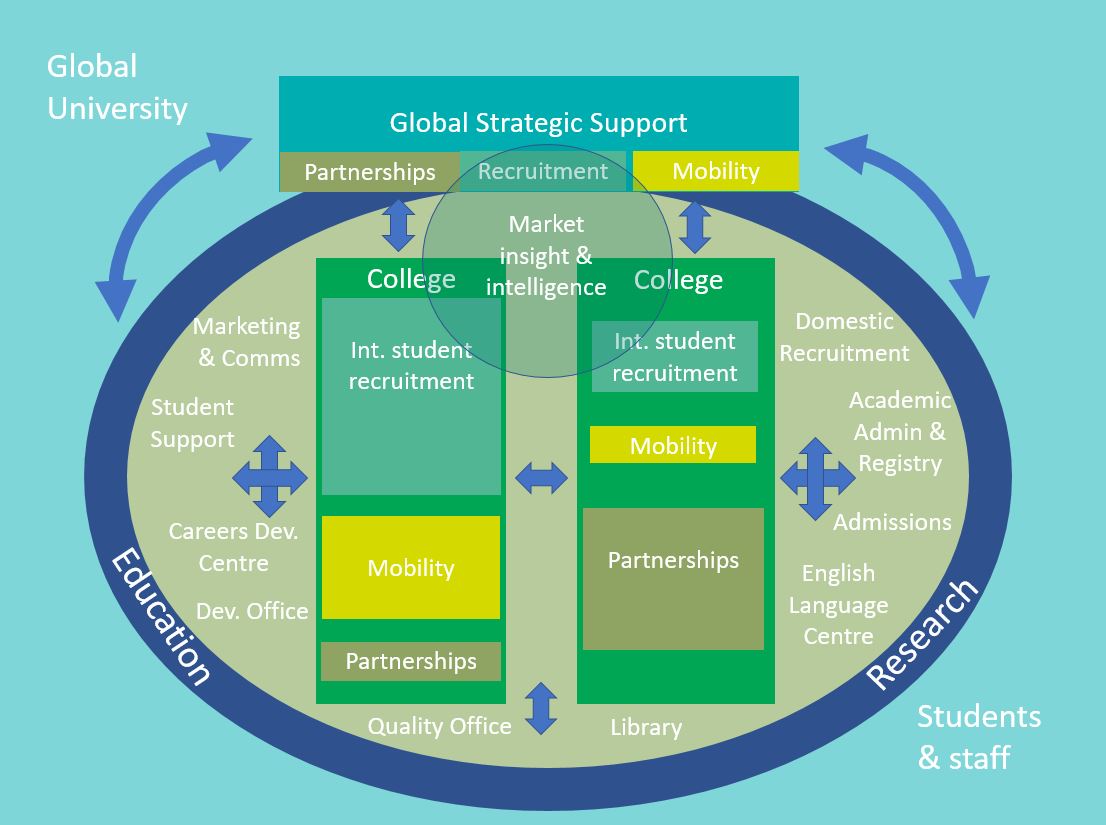-
Courses

Courses
Choosing a course is one of the most important decisions you'll ever make! View our courses and see what our students and lecturers have to say about the courses you are interested in at the links below.
-
University Life

University Life
Each year more than 4,000 choose University of Galway as their University of choice. Find out what life at University of Galway is all about here.
-
About University of Galway

About University of Galway
Since 1845, University of Galway has been sharing the highest quality teaching and research with Ireland and the world. Find out what makes our University so special – from our distinguished history to the latest news and campus developments.
-
Colleges & Schools

Colleges & Schools
University of Galway has earned international recognition as a research-led university with a commitment to top quality teaching across a range of key areas of expertise.
-
Research & Innovation

Research & Innovation
University of Galway’s vibrant research community take on some of the most pressing challenges of our times.
-
Business & Industry

Guiding Breakthrough Research at University of Galway
We explore and facilitate commercial opportunities for the research community at University of Galway, as well as facilitating industry partnership.
-
Alumni & Friends

Alumni & Friends
There are 128,000 University of Galway alumni worldwide. Stay connected to your alumni community! Join our social networks and update your details online.
-
Community Engagement

Community Engagement
At University of Galway, we believe that the best learning takes place when you apply what you learn in a real world context. That's why many of our courses include work placements or community projects.
Project Deliverables
Global Galway Project has established new internationalisation structures and collaborative ways of working. It also encourages a culture that celebrates and values internationalisation in its broadest sense across our university so that everyone feels invested in internationalisation. This will provide a foundation for realising our vision for a global university in line with the University Vision and Strategy 2020 to 2025
Key Deliverables of the Project:
- A new global strategic support Unit will replace the International Office and act as a partner and advisor to Colleges and Professional Units
- Cross-functional teams for recruitment, mobility and partnerships that have new ways of working with clear roles & responsibilities
- A network of partnerships that enables proactive leveraging of opportunities
- Mainstreaming of international student-facing services
- An internationalisation governance framework
- A sustainable approach to funding and delivering internationalisation
Specific Areas of Focus:
A new global strategic support unit has been created (incorporating the International Office) to provide strategic internationalisation support to Colleges and other professional service Units for recruitment, partnerships and mobility. Working with the Vice President International, it will be responsible for supporting our global ambition.
We have developed a high-level Operating Model below which recognises the interconnected nature of internationalisation. Its complexity will require us to develop more collaborative ways of working to deliver functions and responsiveness. This model will provide the foundation for us to realise the benefits of the project and drive excellence in the internationalisation of research and teaching.
The numbers of recruitment roles in both the global strategic support Unit and Colleges need to be expanded to enable us to focus on a broader range of global regions, including Europe. The Recruitment team in the global strategic support Unit will focus on agent management, generating recruitment leads and regional market intelligence, while international officers in Colleges focus on the development of and recruitment to programmes and student conversion. We will grow and diversify our international student recruitment with analytics from the expanded Market Insight & Intelligence capability within the global strategic support Unit and the new Development Office, in collaboration with the Planning and Institutional Research Office.
As part of the expansion of recruitment, there will be an expanded role for the English Language Centre with the development of new and innovative pathways into study and in-sessional supports in collaboration with Colleges and the global strategic support Unit.
The global strategic support Unit will work with Colleges, the Research Office and Research Institutes on campus to grow and professionalise our partnerships. A new Partnerships team has been created within the global strategic support Unit to develop strategic partnerships in conjunction with the Colleges and Research Institutes. This team will also support Colleges and Schools in setting up new educational partnerships and identifying new opportunities within existing partnerships, including due diligence and formal agreement management. It has also developed relationships with governments and institutions globally to identify sponsorship and scholarship opportunities for our students.
The Colleges will continue to be supported by the Mobility team of the global strategic support Unit so they can expand their strategies for international interactions by students and staff. This will be a critical pillar of becoming more open to going out into the World and bringing the World into our university. This will require close working with both the Partnerships and Recruitment teams in order to ensure we are leveraging opportunities and managing mobility with coherent oversight.
The Operating Model structures support work within Academic Administration, Registry and Student Services to deliver an inclusive student experience which is stream-lined and student-focused. This includes strengthening student welfare and support to ensure that the specific needs of an expanding international student cohort are met. A further key area for the Operating Model is student employability. The transformation strengthens the resourcing of the Career Development Centre to support international student employability in a more strategic, cohesive and sustainable way. The employability of all our students will be developed through analysis of global employment trends, delivering enhanced cultural awareness and building global leadership skills.
Phases of Implementation:
The project has four phases for delivery.
.jpg)
Project Principles:
These Principles guide and underpin the future internationalisation Operating Model and the culture that will enable the delivery of our global vision. The Principles describe the future relationship and interaction between the new global strategic support unit, Colleges and Schools, and Professional Service units.
- Innovation and engagement with internationalisation projects and opportunities is a shared responsibility across our university.
- Internationalisation will be recognised as a core activity within the governance structures of our university.
- Our university’s services, supports and structures will meet the needs of all students and staff regardless of background, culture and nationality.
- Our university recognises that internationalisation has many indirect values (including raising cultural awareness, enriching classroom environments and engaging with global research partners) and direct value.
- Sustainability, including organisational sustainability, will be at the core of our internationalisation strategy.
- Research and partnerships will be a central component of our vision for internationalisation through close collaboration between the Research Office, Graduate Studies Office and Colleges.
- There will be two types of student: Domestic (Home) Students, and International Students from countries beyond the islands of Ireland.
- The new or revised structures and ways of working will be built on a culture of close cross-collaboration and optimal, effective use of resources. They will be adaptable and flexible to facilitate changes to the scale of activities and enable changes to the quality of outputs as required.
- Decision-making frameworks and standards for establishing agreements and partnerships to enhance our university will align with the University Vision and Strategy and will minimise unacceptable risk.
- The resourcing of internationalisation activities will draw on the principles of RIGRAM, with Colleges taking responsibility for investment as well as financial gain. The Colleges will use financial gain from RIGRAM to reinvest in areas of internationalisation that have indirect and direct value as prioritised in our university Vision and Strategy document and our internationalisation strategy.




















